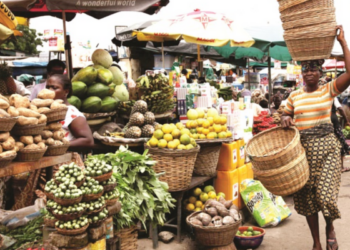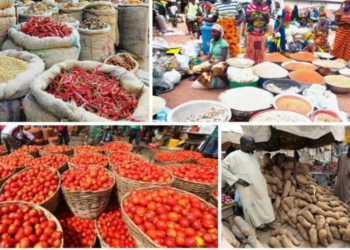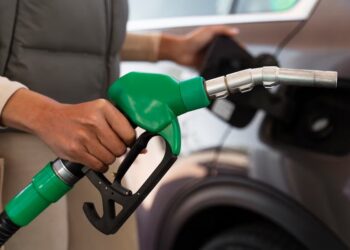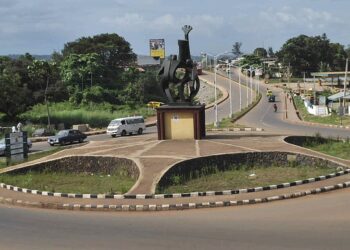The former CEO of the National Bureau of Statistics (NBS) and Chief Economist at KPMG Dr. Yemi Kale has said that around 62% of the Nigerian economy is affected by activities in the oil industry.
He disclosed this during an interview on AriseTv Business show.
When commenting on the recently released GDP and employment report by the NBS over the past week. He said,
- “I have a theory that 62% of the economy is dependent directly or indirectly on what happens in the oil sector. So, if the oil sector remains in contraction, we (the economy) will not grow significantly more than the 2% or 3% that we are seeing until we fix that sector because it is really important. So, it (GDP figures) is not surprising since oil production slowed down in the first month of the third quarter, as long as this continues, we will continue having slow economic growth.”
Why Telecoms services and entertainment is growing
Speaking further, Dr. Kale referred to the manufacturing sector to buttress his point. He noted that the sector is oil-dependent as it depends on receipts from oil sales to get forex for imports.
He also said that industries in the economy that are not oil dependent tend to grow such as telecoms services, creative arts, and entertainment regardless of what happens in the oil sector.
No need for a state of emergency in the oil sector
When asked if the President should declare a state of emergency on the oil sector, he noted that the reasons for the contraction and reduced investment in the oil sector are not new.
He enumerated them to include a global shift from fossil fuels to greener sources of energy and oil theft and vandalism. He advocated that fixing insecurity would go a long way to increasing growth in the sector.
In his words,
- “There isn’t much we can do in the oil sector considering our OPEC quota. But yet, I don’t think it’s that difficult to fix the security issues in the sector. I have recommended censors on the pipelines so that when there is a breach, there is a monitoring station that can dispatch security to where it is happening, and this is not expensive”
- “In fixing the security issues, I don’t think it is declaring a state of emergency that makes it work. We just have to fix security and take it seriously.”
What you should know.
In the latest NBS report on GDP growth rate in Q2, the Nigerian GDP growth slowed to 2.5% from 3.54% recorded in the corresponding quarter of 2022.
The oil sector’s contribution to the GDP fell to 5.34% far behind crop production, trade, and telecoms/information services.























